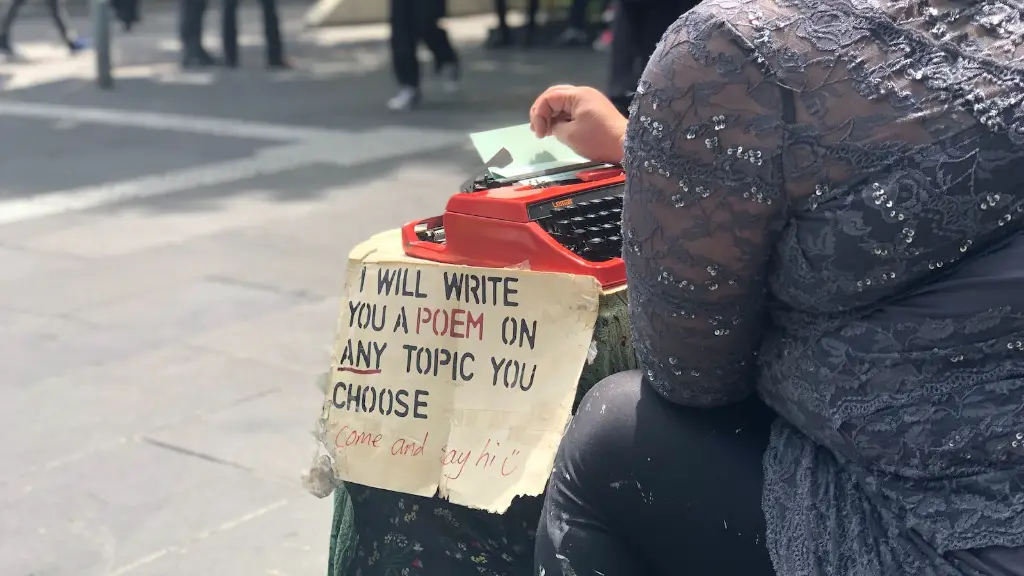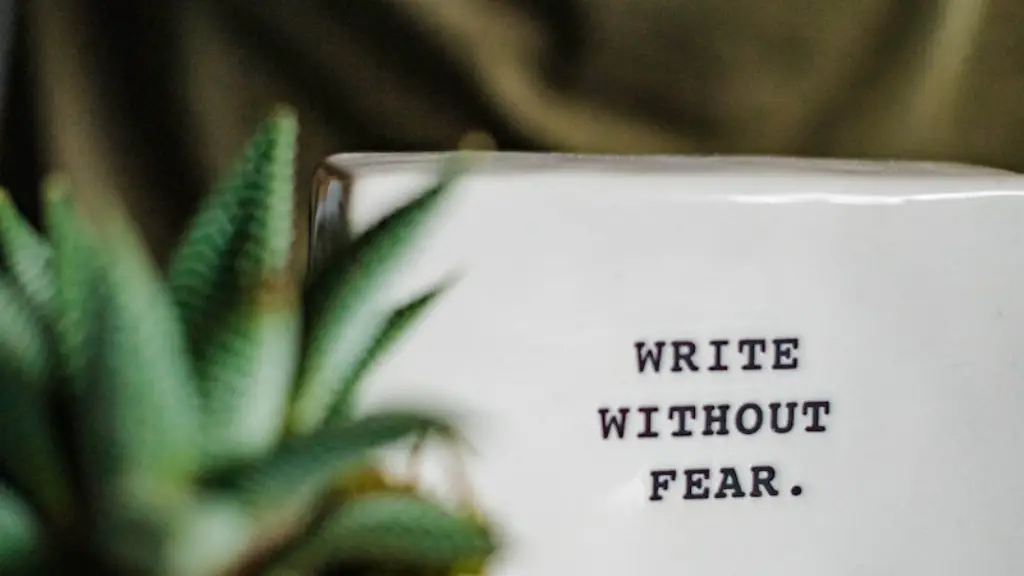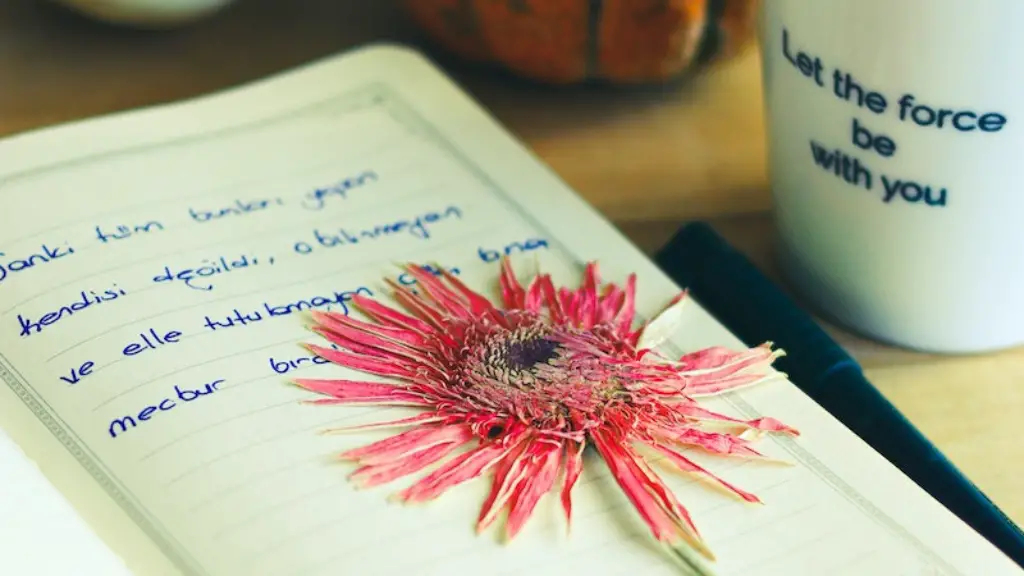The Ugly Truths of War Poetry
One of the oldest poetic genres is war poetry. It is not a popular topic for many today, but it is a treasured literary source for societies throughout history. Centuries before contemporary poets wrote about peace, love and the unknown, learned poets composed odes on the tragedies of war. Emerging since antiquity, war poetry reflects on the fearful reality of warfare by depicting the gruesome battles fought on the battlefield, the harsh separation of lovers, the death of a soldier, or a plea for peace.
Despite these often bleak foundations, war poetry remains a captivating form of art. Today, a treasury of war poetry exists, offering readers a remarkable selection of poems written with the intention to provoke pain, pity, and caution. In this article, we examine the truth behind war poetry, respectively, the purpose of the genre, what it looks like, and the impact that it leaves.
What Is War Poetry?
War poetry is an epitaph for violence, a lament for warriors and daring figures of the past, and a source of inspiration for future generations. War poetry is unique in its ability to illustrate courageous moments, poignant tales of young love, loss, and the complexity of human compassion in an unimaginable predicament. War poetry memorializes a people’s emotions and experiences, echoes their pain and debates the ethical issues of war. It serves, too, as a resource for teaching meaningful civil values.
The hallmark of war poetry is its candor to express the truth in a painful and honest light. Writers discuss the anxiety of separation, the destructiveness of death, the evil of war and the longing of peace. War poetry originates from many style periods, embracing everything from traditional odes to contemporary narratives, and is drenched with imagery, irony and even sarcasm in order to represent its motifs with precision. It is characterized by passion, unrestrained emotion and tension, and presents the reader with a feeling of uncertainty and vulnerability.
A Look Into Some Classic War Poetry
When it comes to classic war poetry, there is no shortage of memorable titles to draw on. Wilfred Owen’s ‘The Parable of the Old Man and the Young’, for example, draws on the story of Abraham and Isaac in a powerful retelling that highlights the horror of war and how it destroys even the most innocent lives. Similarly, the famous World War I poem ‘In Flanders Fields’ by John McCrae conveys the fear and suffering of soldiers in the midst of conflict. ‘Dulce Et Decorum Est’, another renowned piece of Owen’s, directly addresses the futility of war and its brutality.
A Modern Poetic Revival
In recent decades, modern war poems have seen a great revival. Poets like Remi Raji, George Cassiday, and Thomas Sayers Ellis have written powerful pieces of literature from the perspective of soldiers on the battlefield and loved ones whose lives were shattered by war.
In the collection of poems Poems from the Front Lines, Remi Raji captures the tragedy of war in a way that speaks directly to the current times. His poem ‘Vets’, for instance, recounts the melancholic experiences of veterans returning home after a long deployment overseas. Raji’s words are powerful and moving, sending a clear message to those burdened with the pain of war. Similarly, in his poem ‘Dedicated to the Dead’, George Cassiday addresses both the physical and psychological effects of war on those who serve and their families left behind.
The Impact of War Poetry
When it comes to war poetry, the question of its impact is an important one. An answer may prove difficult to come by, since the genre’s effect on society varies. It is often argued by many that war poetry is the most apropos medium for conveying the inherent tragedy of war. In war, the individual’s perspective dictates how one experiences and interprets the brunt of battle. Thus, war poetry offers insight and understanding into the less accessible aspects of warfare.
War poetry provides us with an array of emotions, from sadness to anger, and a unique forum for discussing the conclusions war can bring. It can also serve as a beacon of peace and inspiration, motivating us to work for a better future. War poetry also serves as an opportunity to commemorate the fallen, to observe their bravery and resilience, and to remember their heroic deeds long after they’re gone.
The Dissemination of War Literature
The propagation of war poetry can be seen throughout our culture, most notably in the entertainment industry. Novels, television series, and films have utilized war poetry to punctuate their messages. In Steven Spielberg’s classic World War II movie Saving Private Ryan, the main character, Private James Ryan, recites Owen’s ‘The Parable of the Old Man and the Young’, as a moment of reflection and catharsis.
The prevalence of war poems in today’s pop culture may be indicative of a collective attempt to cope with the atrocities of the past. War poetry and the themes it unravels may still hold some degree of relevance to a contemporary audience, dishing out a logical, although eerie endpoint for the disillusioned era of war.
The Legacy of War Poetry
War poetry continues to sustain its relevance, offering a timeless reminder of how far we have come and how far we still have to go. While the genre may be daunting and sometimes dark, it is certainly worth reading. War poetry has allowed us to capture and immortalize both the beauties and tragedies of warfare over the centuries. It has given us a poignant and powerful podium to discuss war, and to share the collective agony and sorrow of societies, families and the individual.
The Power and Resonance of War Poetry
War poems allow us to examine, reflect and confront the brutality that war inflicts, both on the physical and psychological levels. They provide an invaluable pathway to connecting and empathizing with the emotions experienced by men and women who have lived through warfare.
Many war poems speak of heroic deeds, courage and resilience, reminding us of the strength of the human spirit. This can be seen in ‘The Hero’ by Wilfred Owen and ‘For the Fallen’ by Laurence Binyon, which both focus on the valor of soldiers, enabling us to recognize their conviction and commitment to justice and righteousness in the face of danger.
The Duty for Reflection
For readers, to experience war poetry is to take part in an invaluable journey. It allows us access into the secret rooms of the human soul. It allows us to connect the individual with reality, and to reflect on what it means to love and lose, to fight and forgive, and to have faith and despair.
For this reason, we must consider it a solemn duty both to study and to learn from the works of war poets. By doing so, we can not only understand our past, but actively help shape the future.
The Battle of Time and Memory
In times of war, it is clear that memory is one of the most precious tools humanity possesses. War poetry speaks for the faceless, for the cries of those forgotten, for a past that no one can ever fully understand.
Its duty it is to remind us of the power of the individual’s experience, to show us how we are all connected in suffering, and to demonstrate how easily our capacity for courage and compassion can be extinguished by a lifetime of war.
The Shaping of War Experiences
In addition to this, war poetry serves to shape our understanding of war. It is not merely a representation of reality, but also a commentary on the effects of violence, the power of camaraderie, and a testament of resilience in the face of hardship.
War poetry enables us to take an honest look into the struggle of those affected, to gain a more realistic understanding of war, and to develop an emotional understanding of the aftermaths of battle.
The Evolution of War Poetry
As the world continues to evolve and technology advances, so too does war poetry. While some poets still stay true to the traditional styles of writing in which war poetry originated, many more now choose to write in their own unique styles, crafting works that distinguish themselves from the classic.
For example, Iraqi-born poet Dunya Mikhail’s narrative poem ‘The Wounded Falcon’ reflects a personal account of war in her homeland, while Jennifer Givhan’s ‘Poem of The Atom: Hiroshima’ speaks to the physical and emotional power of nuclear warfare.
There is no doubt that war poetry will continue to evolve and diversify, inspiring readers to think and to remember. The history etched in these works will continue to reflect the truth, and to serve as a vivid reminder of human resilience in the aftermath of tragedy.



